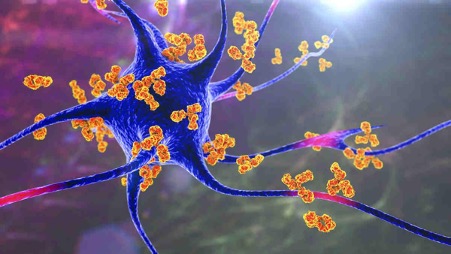The breakthrough announcement by NeuroScientific Biopharma today elevates its lead drug EmtinB to hunt down the $20bn multiple sclerosis market.
Australian drug development company NeuroScientific Biopharmaceuticals (ASX:NSB) announced that its lead drug candidate EmtinB has shown promising signs in the treatment of multiple sclerosis (MS).
The latest data has highlighted that EmitinB significantly reduced important biomarkers associated with dysfunctional immune responses in MS.
The study specifically looked into the effect of EmtinB on the inflammation, immunomodulation, and cell migration of the key drivers of the disease.
The latest results also add to the growing body of impressive data that supports the potential for EmtinB to address significant unmet medical need in the treatment of MS.
The market for MS is large, with global sales for approved MS drugs in 2020 of approximately US$22 billion.
Apart from MS, EmtinB is also being developed as a therapeutic treatment for other neurodegenerative conditions, including Alzheimer’s disease, as well as severe COVID-19 infection.
“It is incredibly exciting to continue to explore the many potential therapeutic benefits of EmtinB, and these current results from our biomarker studies further validate the disease modifying potential of EmtinB as a treatment for multiple sclerosis,” commented NSB’s CEO, Matt Liddelow.
Following these results, NSB says it intends to assess EmtinB for MS in future planned Phase 2 studies.
Study of EmtinB in MS
MS is a progressive neurodegenerative disease characterised by chronic inflammatory responses.
In a patient with MS, activated immune cells migrate into the central nervous system, and attack the myelin sheath that surrounds nerve fibres, damaging the neurons.
This is what leads to the disruption of normal cognitive, sensory, and motor function of the patient.
Cell signalling chemicals, called cytokines and chemokines, are key drivers of the immune responses in MS, and are often used as biomarkers to assess treatment effect.
NSB’s study, conducted by leading US-based independent contract research organisation Eurofins, showed that EmtinB significantly reduced important MS-related biomarkers.
These biomarkers were: interferon gamma inducible protein-10 (CXCL10/IP-10), Immunoglobulin G (IgG), and matrix metalloproteinase-9 (MMP-9). All are significantly elevated in patients with MS.
EmtinB to treat COVID-19
Shares in NSB jumped 10% earlier this month after the company announced that EmtinB also showed promising signs in the treatment of severe COVID-19 infection, significantly reducing biomarkers, and improving prognosis.
In particular, EmtinB was found to significantly reduce the SAA, IP10, Eot3 biomarkers associated with severe COVID-19.
That news follows an announcement in July that EmtinB had passed an ocular safety and tolerance study in non-human primates by Toxikon, a US entity which provides pre-clinical safety studies and is approved by the FDA to do so.
This article was developed in collaboration with NeuroScientific Biopharmaceutical , a Stockhead advertiser at the time of publishing.
This article does not constitute financial product advice. You should consider obtaining independent advice before making any financial decisions.
You might be interested in












